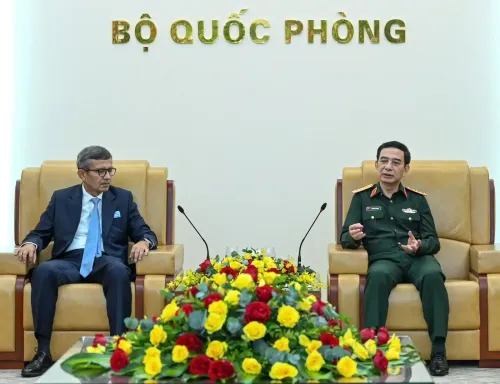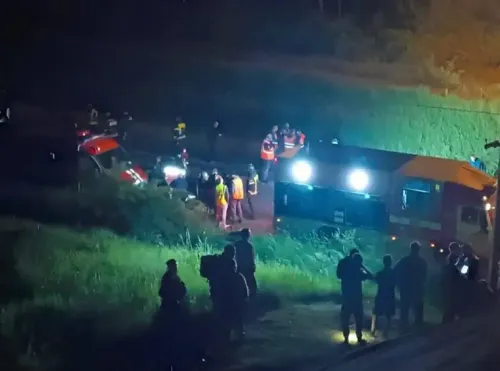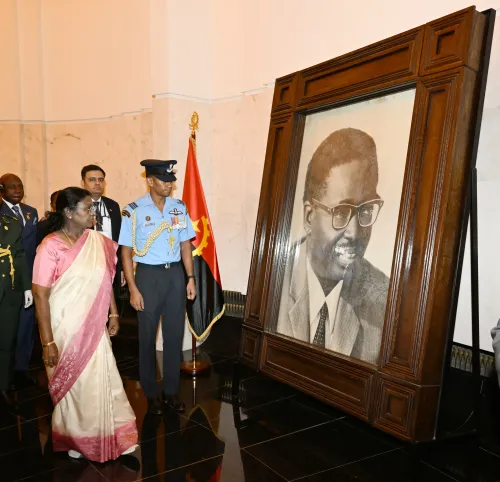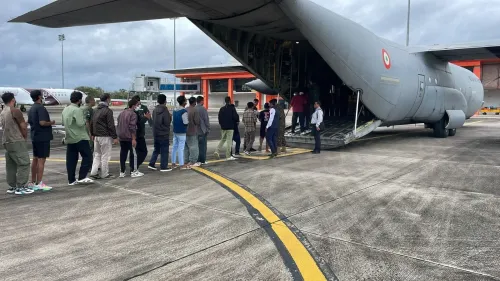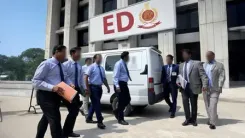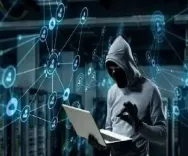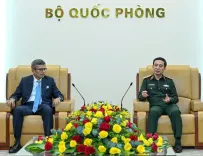Ex-President of the Philippines Heads to The Hague for ICC Trials
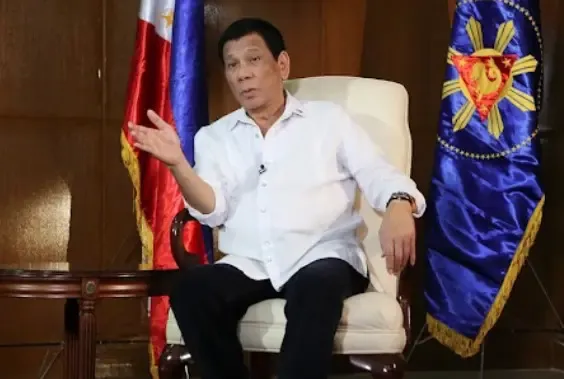
Synopsis
Key Takeaways
- Duterte faces ICC charges linked to his war on drugs.
- Over 30,000 deaths reported during his administration.
- Philippines government affirms compliance with legal procedures.
- Senate President praises the execution of the arrest warrant.
- ICC retains jurisdiction despite Philippines' withdrawal.
Manila, March 12 (NationPress) Rodrigo Duterte, the former President of the Philippines, is being transported to The Hague, Netherlands, to answer to the International Criminal Court (ICC) regarding allegations of crimes against humanity, according to local news sources on Wednesday.
Duterte was apprehended at the Manila airport on Tuesday morning following his return from Hong Kong, based on a warrant issued by the ICC. He faces accusations related to his involvement in supposed extrajudicial killings during his administration's controversial war on drugs.
Human rights organizations believe that over 30,000 individuals lost their lives during this campaign, with many being executed without trial or solid evidence.
On Wednesday, Francis Escudero, the Senate President of the Philippines, praised the law enforcement and legal teams for the smooth and incident-free execution of the ICC's arrest warrant against Duterte.
Escudero emphasized the nation's dedication to international treaties, asserting that the execution of the warrant signifies the “maturity, civility, calm, and professionalism” exhibited by all involved parties, as reported by the state-operated Philippine News Agency.
“As this legal process unfolds, we anticipate that the ICC will uphold the rights of former President Duterte and guarantee that he receives due process as per the Rule of Law,” he stated.
On the same day, Ferdinand R. Marcos Jr., the current President of the Philippines, declared that the government adhered to all necessary legal protocols during Duterte's arrest.
In a press briefing, Marcos noted, “We complied with all essential legal procedures. I am confident that further scrutiny will reveal that our actions were appropriate and justifiable,” mentioning that there exists a “very good basis” to execute the ICC's arrest mandate against Duterte.
Moreover, Marcos rejected claims that Duterte's detention was unlawful, asserting that the Philippine government was merely “fulfilling the request from the International Criminal Police Organisation (Interpol) to enforce the ICC order.”
Last week, the ICC issued the arrest warrant for Duterte to secure his presence before the court as it examines his violent war on drugs.
The tribunal is scrutinizing Duterte for alleged crimes against humanity related to fatalities associated with his drug war during his tenure as mayor of Davao City and subsequently as President of the Philippines, as reported by media sources.
Additionally, the chamber clarified that despite the Philippines' exit from the ICC on March 17, 2019, it retains jurisdiction over the alleged offenses that transpired while the Philippines was a member of the Rome Statute, specifically from November 1, 2011, to March 16, 2019.

